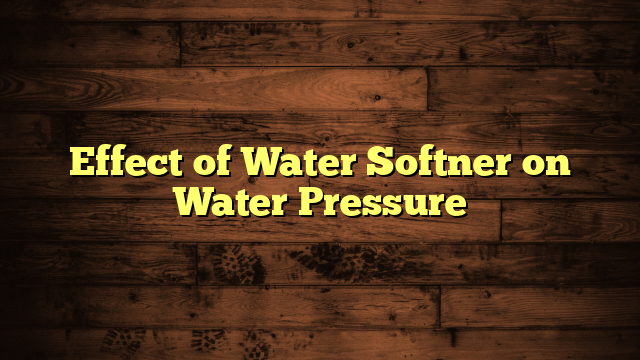Is Dishwasher Rinse Aid a Water Softner?
When it comes to enhancing your dishwashing experience, you might think of rinse aids as a little helper in the process. However, you may wonder whether these products truly act as water softeners. While both tackle hard water issues, their roles are distinct and essential to understand. If you're curious about how rinse aids work and what they actually do for your dishes, you might find the differences more significant than you expected. Let's explore this topic further and uncover the nuances that could impact your dishwashing routine.
Key Takeaways
- Dishwasher rinse aids and water softeners serve different functions; rinse aids enhance drying and cleanliness, while water softeners address hard minerals in water.
- Rinse aids contain surfactants that reduce water surface tension, improving drying performance, but do not soften water.
- Water softeners eliminate calcium and magnesium ions from water, reducing scale buildup and improving soap effectiveness.
- Using rinse aids can help mitigate some hard water issues, but they do not provide the long-term benefits of water softeners.
- For optimal dishwashing results, incorporating both rinse aids and water softeners is recommended, especially in hard water areas.
Understanding Dishwasher Rinse Aid
Dishwasher rinse aid plays an essential role in enhancing your dishwashing experience. It helps to improve drying performance, reduce water spots, and guarantee your dishes come out sparkling clean. Understanding the different rinse aid types available can greatly impact your dishwasher maintenance routine.
Most rinse aids contain surfactants that lower the surface tension of water, allowing it to slide off dishes more easily. This action prevents droplets from forming, which can lead to water spots.
You'll find various rinse aid types, including liquid, gel, and tablet forms. Liquid rinse aids are the most common due to their effectiveness and ease of use, while gels and tablets offer convenience for specific needs.
Incorporating rinse aid into your routine not only enhances cleaning but also prolongs the lifespan of your dishwasher. It helps prevent mineral buildup and reduces the frequency of repairs, making it a smart choice for maintaining your appliance.
The Role of Water Softeners
While rinse aids enhance your dishwashing results, water softeners play an essential role in improving the overall quality of the water used in your home.
By addressing hard water issues, these systems can greatly enhance your daily life. Here's how they function:
- Reduce Mineral Buildup: Water softeners eliminate calcium and magnesium ions, which are the primary culprits behind mineral buildup in pipes and appliances. This reduction helps prevent costly repairs and prolongs the lifespan of your appliances.
- Improve Cleaning Efficiency: Softened water allows detergents to work more effectively. You'll notice that your dishes come out cleaner, and your laundry feels softer because the soap can lather better without the interference of hard minerals.
- Enhance Water Quality: With fewer minerals in your water, you experience better taste and fewer spots on your dishes. Softened water contributes to a more pleasant experience when showering and cooking.
How Rinse Aid Works
Many homeowners might not realize how rinse aid works to enhance the dishwashing process. Rinse aid is designed to improve dishwasher performance by promoting better drying and preventing water spots on dishes. It contains specific ingredients that reduce the surface tension of water, allowing it to flow off dishes more easily.
Here's a quick look at the main rinse aid ingredients and their functions:
| Ingredient | Function | Benefit |
|---|---|---|
| Surfactants | Lower surface tension | Reduces water spots |
| Acids | Break down mineral deposits | Improves shine |
| Solvents | Enhance drying efficiency | Accelerates drying time |
| Fragrances | Mask unpleasant odors | Leaves dishes smelling fresh |
When you add rinse aid during your dishwasher's rinse cycle, these ingredients work together to guarantee that water sheets off dishes rather than forming droplets. This process not only enhances the drying time but also minimizes residue, contributing to cleaner glassware. By understanding how rinse aid works, you can maximize your dishwasher's effectiveness and enjoy spotless results.
Benefits of Using Rinse Aid
Using rinse aid can greatly enhance your dishwashing experience by delivering cleaner, drier results. When you add rinse aid to your dishwasher, you improve rinsing efficiency and minimize the chances of spotting on your dishes.
Here are three key benefits of using rinse aid:
- Enhanced Rinsing Efficiency: Rinse aid helps water slide off dishes more easily, ensuring that food particles and detergent residues are washed away effectively. This means your dishes come out cleaner after each cycle.
- Spotting Reduction: By reducing the surface tension of water, rinse aid minimizes the formation of water spots and streaks on glassware and dishes. This results in a sparkling clean finish, enhancing the aesthetic appeal of your tableware.
- Faster Drying Times: Rinse aid promotes quicker drying by allowing water to drain off surfaces more effectively. This not only saves you time but also reduces the likelihood of water spots forming as your dishes dry.
Incorporating rinse aid into your dishwashing routine can lead to noticeable improvements in cleanliness and presentation, making it a valuable addition to your dishwasher.
Hard Water and Its Effects
Hard water contains high levels of minerals like calcium and magnesium, which can lead to various issues in your home.
When you wash your dishware, these minerals can leave unsightly spots and film, affecting both appearance and cleanliness.
Understanding hard water's impact is essential for maintaining the quality of your dishes and the efficiency of your dishwasher.
Hard Water Explained
Water quality greatly impacts various aspects of daily life, and hard water is a common issue in many households. Hard water contains high levels of minerals, such as calcium and magnesium, which can lead to several problems. Understanding hard water types is essential for finding effective hard water solutions.
Here are three key effects of hard water:
- Scale Buildup: Over time, minerals accumulate in pipes and appliances, reducing efficiency and leading to costly repairs.
- Soap Inefficiency: Hard water reacts with soap, making it less effective. You might notice soap scum on dishes and skin, requiring more product for cleaning.
- Laundry Issues: Clothes washed in hard water can feel rough and appear dingy, as minerals can leave residues on fabrics.
Identifying the specific hard water types in your home can guide you toward appropriate hard water solutions, such as water softeners or filtration systems.
Impact on Dishware
The presence of hard water can greatly affect the cleanliness and appearance of your dishware. When you wash your plates and glasses in hard water, mineral deposits can cling to their surfaces, leading to spots, streaks, and a dull finish. This not only diminishes your dishware's aesthetic appeal but can also impact its longevity. Over time, the accumulation of these minerals may lead to more significant wear and tear, ultimately shortening the lifespan of your favorite items.
Using rinse aids can improve cleaning efficiency, but it is crucial to understand their limitations. While they help prevent water spots, they don't fully address the underlying issues caused by hard water. Rinsing aids can complement your efforts, but they won't replace the need for a water softener if you want to maintain your dishware's pristine condition.
Here's a quick overview of the effects of hard water on dishware:
| Effect | Description | Solution |
|---|---|---|
| Spotting | Mineral deposits leave marks | Use rinse aid |
| Dullness | Loss of shine due to buildup | Regular cleaning |
| Reduced Longevity | Increased wear and tear | Consider water softener |
Comparing Rinse Aids and Softeners
When considering the role of rinse aids and water softeners in your dishwashing routine, it's essential to understand their distinct functions. Both products serve specific purposes that can greatly affect your dishwashing results, yet they operate in different ways.
Here's a quick comparison of their key differences:
- Rinse Aid Benefits: Rinse aids enhance drying performance, prevent water spots, and improve the overall cleanliness of your dishes. They work by reducing the surface tension of water, allowing it to sheet off surfaces more effectively.
- Water Softener Types: Water softeners typically fall into categories such as salt-based, salt-free, and magnetic. Each type targets hard minerals in water, making it softer and resulting in better soap performance and less scale buildup.
- Functionality: While rinse aids focus on the final rinse process, improving the appearance of your dishes, water softeners deal with the water quality itself, directly affecting your washing efficiency.
Understanding these differences allows you to make informed choices about which products to incorporate into your dishwashing routine for ideal results.
When to Use Each Product
Understanding when to use rinse aid versus a water softener is essential for ideal dishwashing results.
Rinse aid enhances drying and prevents water spots, while a water softener targets mineral hardness in your water supply.
Purpose of Rinse Aid
Rinse aid plays an essential role in enhancing your dishwasher's performance, especially when it comes to achieving spotless dishes.
While your dishwasher does the heavy lifting, rinse aid optimizes the final rinse cycle, ensuring that water sheets off your dishes rather than forming droplets that can leave spots or streaks.
Understanding the rinse aid benefits and usage can help you decide when to incorporate it into your washing routine.
Here are three key scenarios where rinse aid is particularly beneficial:
- Hard Water Areas: If you live in an area with hard water, rinse aid can help mitigate mineral deposits that lead to unsightly spots on glassware and dishes.
- Frequent Dishwashing: For households that run the dishwasher daily, using rinse aid can maintain the cleanliness and appearance of your dishes over time.
- Glassware: If you often wash delicate glass items, rinse aid is essential to prevent etching and clouding, preserving their shine.
Purpose of Water Softener
A water softener is designed to combat the effects of hard water, which contains high levels of minerals like calcium and magnesium. When you notice scale buildup on your faucets, cloudy dishes, or dry skin after bathing, it's time to contemplate a water softener.
These systems utilize softening agents, such as sodium or potassium, to replace the hard minerals in your water. This process not only improves water quality but also prolongs the lifespan of your plumbing and appliances.
You should use a water softener in areas where hard water is prevalent. If your local water report indicates high levels of hardness, investing in a water softener can enhance your daily life.
You'll likely find that laundry comes out cleaner, soap produces more lather, and your skin feels softer.
On the other hand, rinse aid is specifically formulated to improve dishwashing performance, preventing spots and film on glassware.
While both products aim to improve your experience with water, they serve distinct purposes.
Best Practices for Dishwashing
Effective dishwashing hinges on adopting best practices that enhance cleanliness and efficiency. To achieve ideal results, you should focus on three key areas: dishwashing techniques, ideal loading, and maintenance.
1. Choose the Right Cycle: Use the appropriate wash cycle based on the soil level of your dishes. Heavily soiled items may require a heavy-duty cycle, while lightly soiled dishes can benefit from a quick wash.
2. Ideal Loading: Arrange your dishes correctly in the dishwasher to maximize water flow and cleaning power. Place larger items on the bottom rack and smaller, more delicate items on the top.
Make sure that items aren't blocking the spray arms, as this can lead to uneven cleaning.
3. Regular Maintenance: Keep your dishwasher in top shape by cleaning the filter and checking the spray arms regularly. This prevents food buildup and guarantees that your unit operates efficiently.
Frequently Asked Questions
Can I Use Rinse Aid With Soft Water?
You can use rinse aid with soft water, but it's often unnecessary. Soft water benefits include reduced mineral deposits, so you might consider rinse aid alternatives like vinegar or lemon juice for streak-free results.
Does Rinse Aid Prevent Spots on Glassware?
Yes, rinse aid greatly enhances spot prevention on glassware, ensuring ideal glass clarity. By reducing surface tension, it allows water to drain off more effectively, minimizing residue and leaving your glassware sparkling clean after each wash.
Is Rinse Aid Safe for All Dishwashing Machines?
Rinse aid's like a superhero for your dishes! Most dishwasher compatibility is great, but check your model's manual. Some rinse aid ingredients might not suit certain machines, so verify compatibility to avoid damage or performance issues.
How Often Should I Refill Rinse Aid?
You should check your rinse aid level weekly and refill as needed. Maintaining this refill frequency maximizes rinse aid benefits, ensuring spotless dishes and preventing water spots, which enhances your dishwasher's overall cleaning efficiency.
Can I Make My Own Rinse Aid at Home?
Creating your own rinse aid is like cooking up a secret recipe. You can mix vinegar and water for a DIY rinse aid or explore other homemade alternatives to enhance your dishwasher's performance without store-bought options.
Conclusion
To summarize, while both rinse aids and water softeners play important roles in improving your dishwashing experience, they serve distinct purposes. Curiously, about 85% of households in the U.S. deal with hard water, which can lead to mineral buildup and reduced appliance efficiency. Using rinse aid can help enhance the appearance of your dishes, but it won't replace the need for a water softener if you're facing hard water issues. Choose wisely to maintain your dishwasher's performance.







